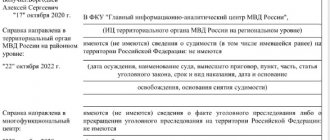If a writ of execution for alimony is lost, it can be restored in accordance with Art. 430 Code of Civil Procedure of the Russian Federation.
Based on paragraph 1 of this article, “In case of loss of the original writ of execution or court order (executive documents), the court that made the decision, issued the court order, may issue duplicates of the writ of execution at the request of the claimant or bailiff.”
Based on the above, the restoration of a lost writ of execution for alimony is carried out in court. You apply to the court with a request (application) to issue a duplicate of the writ of execution.
Restoration of a lost court order or writ of execution for alimony is carried out in court; it is necessary to submit an application for the issuance of a duplicate of the court order (writ of execution).
If the writ of execution for alimony is lost due to the fault of the Claimant, it is very important to pay attention to the statute of limitations, since an application for the issuance of a duplicate of the writ of execution can be submitted to the court before the expiration of the period established for presenting the writ of execution for execution.
1. In case of loss of the original writ of execution or court order (executive documents), the court that made the decision that issued the court order may, upon the application of the claimant or bailiff, issue duplicates of the writ of execution.
2. An application for the issuance of a duplicate of a writ of execution may be submitted to the court before the expiration of the period established for presenting the writ of execution for execution, except in cases where the writ of execution was lost by the bailiff or other person carrying out the enforcement and the claimant became aware of this after expiration of the period established for the presentation of the writ of execution for execution. In these cases, an application for the issuance of a duplicate of the writ of execution may be submitted to the court within a month from the day the claimant became aware of the loss of the writ of execution.
3. The application of the claimant or bailiff for the issuance of a duplicate of the writ of execution is considered by the court at a court hearing within a period not exceeding ten days from the date of receipt of the said application by the court. Persons participating in the case are notified of the time and place of the meeting, but their failure to appear is not an obstacle to resolving the issue of issuing a duplicate. When considering an application for the issuance of a duplicate of a writ of execution, the court ascertains the circumstances indicating the loss of the writ of execution and examines the evidence confirming its loss.
4. A private complaint may be filed against a court ruling to issue a duplicate of a writ of execution or to refuse to issue it.
The writ of execution was lost by an official: what to do?
It is necessary to initiate an application to the court to issue a duplicate. The application can be submitted by the Claimant or the Bailiff.
Important! If the writ of execution was lost by a bailiff or another person carrying out enforcement, and the Claimant became aware of this after the expiration of the period established for presenting the writ of execution for execution, the Claimant or the Bailiff has the right to submit an application for the issuance of a duplicate to the court within a month from the date when the Claimant learned about the loss of the sheet.
Resumption of alimony payments
The applicant may agree with the alimony payer to make payments and not issue a second document to renew them. But the agreement must be written. Also, the document should be notarized and submitted to the judge for approval so that neither party can change the terms of the agreement.
If an agreement cannot be reached, then you should pick up a copy of the executive documentation. After receiving the secondary writ of execution, you should present it to the following organizations:
- FSSP branch;
- to the accounting department at the place of work of the payer;
- to the pension fund department;
- other organizations responsible for withholding alimony in favor of minors.
After the presentation of duplicate enforcement documentation, the collection of alimony payments will be resumed.
Related article: Sequence of deductions across several writs of execution: how to distribute deductions
What are the consequences of losing a writ of execution?
The following may lose a writ of execution:
- Claimant.
- Bailiff.
- Another person performing the execution.
The loss of a writ of execution by a claimant may result in him not being able to obtain a duplicate due to the expiration of the period established for presenting the writ of execution for execution, and as a result, the opportunity to collect the debt from the debtor.
If a writ of execution is lost due to the fault of an official, then relaxations regarding the statute of limitations come into force.
According to clause 2, art. 430 of the Code of Civil Procedure of the Russian Federation, “An application for the issuance of a duplicate of a writ of execution may be submitted to the court before the expiration of the period established for presenting the writ of execution for execution, except in cases where the writ of execution was lost by the bailiff or other person carrying out the execution and the claimant became this is known after the expiration of the period established for the presentation of the writ of execution for execution. In these cases, an application for the issuance of a duplicate of the writ of execution may be submitted to the court within a month from the day when the claimant became aware of the loss of the writ of execution.”
Consideration of the case
10 days after the request for a duplicate is accepted, a court date is set. Its participants are notified of the time and date of consideration of the case in advance. The plaintiff and the defendant, the bailiff who opened enforcement proceedings against the debtor, or the accountant responsible for calculating wages and withholding alimony payments from the payer must appear at the trial.
If any of the parties cannot be present in court on the appointed day, the judge should be notified of this no later than 3 days before the trial. Based on the results of the consideration of the case, the court makes one of the following decisions:
Related article: I received a writ of execution for work: what to do
- satisfy the applicant's demands for an official copy of the court order;
- refuse to create a duplicate.
In order for the application to be accepted for consideration, payment of a state fee will be required. Each sheet of an official document will cost the applicant 4 rubles, and the payment amount cannot be less than 40 rubles.
Procedure for obtaining a duplicate
The procedure for reviewing an application and issuing a duplicate is extremely simple, for this:
- It is necessary to determine who exactly lost the writ of execution.
- Has the statute of limitations expired for presenting a writ of execution for execution?
- Apply to the court in accordance with the options ↓.
Options:
- If the sheet is lost by the Claimant and the statute of limitations has not expired, it is necessary to submit an application to the court for the issuance of a duplicate.
- If the sheet is lost by the Claimant, the statute of limitations has expired, then it will not be possible to recover a duplicate.
- If the sheet is lost by the bailiffs, the deadlines have expired, you learned about the loss of the sheet after they had expired, then within a month from the day the Claimant learned about the loss, the Claimant or the bailiffs have the right to submit an application for the issuance of a duplicate.
Circulation period
You can apply for an official copy of the document on the assignment of alimony payments throughout the entire period of validity of the writ of execution. That is, until the child reaches 18 years of age and for 3 years after reaching adulthood.
After receiving the original or secondary enforcement documentation, it should be sent to the bailiffs to open enforcement proceedings. Otherwise, minors will not be able to receive money. Penalties will be imposed on the alimony payer, and penalties and interest may be withheld.
Why do you need a duplicate?
Usually a duplicate is taken if the original is lost to enforce a court decision.
Rules for drawing up and a sample application for a duplicate
The application must indicate the name of the court, the details of the Claimant and the Debtor. It is necessary to indicate that the writ of execution was lost, indicate the reason and who lost the writ, when, and in the pleading part, ask the court to issue a duplicate of the order or writ of execution on the basis of Art. 430 Code of Civil Procedure of the Russian Federation and Federal Law “On Enforcement Proceedings”.
Collect alimony debts for 15 years: is it possible?
The family life of Dmitry Isakov* and Elena Rusakova* did not work out. After the divorce, their only daughter remained to live with her mother.
In the summer of 2000, Rusakova first applied to the Goryacheklyuchevskoy City Court of the Krasnodar Territory to receive alimony from her ex-husband for the maintenance of their minor child. Then the first instance decided that from August 2, 2000, Isakov must monthly transfer a quarter of all his income to his daughter.
In the fall of the same year, enforcement proceedings against the man were completed because he regularly sent money. However, the ex-wife did not appeal this decision of the bailiffs.
After two years of payments, the father stopped sending funds for the maintenance of his minor daughter. Rusakova could not force him to pay alimony, since the Goryacheklyuchevsk City Court lost the court order in this dispute. Rusakova did not try to achieve these payments in any other way.
The case was found, what next?
In 2021, the case was found. Then Rusakova again applied to the court to initiate enforcement proceedings against Isakov in order to force him to pay the debt. At that time, the alimony payment was already overdue for 15 years.
Isakov assured that he learned about the need to pay alimony from Rusakova’s words and supported his daughter on his own. But he could not provide any evidence in the form of checks or receipts.
The bailiff calculated the debt for three years, as stated in Art. 113 of the Family Code (“Determination of alimony debt”). The amount amounted to over 300,000 rubles.
This was not enough for Rusakova: she wanted to get money from the child’s father for all 15 years. In her next appeal to the court in 2021, the ex-wife demanded to recover 3 million rubles. alimony debts and 24 million rubles. penalties. The first instance satisfied this requirement in full. The judge pointed out the bailiff's mistake and ordered him to recalculate the amount of the debt. In his decision, judge Mikhail Smirnov referred to the same article. 113 IC, the same as the FSSP employee. The court emphasized that the payment of money stopped due to the fault of the father himself (case No. 2a-677/2018).
There is more than one step from the first instance to the Supreme Court
The appellate court did not agree with this decision. The Krasnodar Regional Court overturned the act of the Goryacheklyuchevsky City Court, citing the fact that for 15 years no one had required Isakov to pay alimony. That is, no actions were taken to collect the debt.
In turn, the presidium of the regional court canceled the appeal ruling and forced the decision of the first instance to be checked again. In the second round, the lower courts decided to recover 3 million rubles. alimony debts. In recovery of 24 million rubles. The courts rejected the penalty (case No. 33a-29178/2019).
Isakov did not agree with the conclusions of the courts and appealed them to the Supreme Court (case No. 18-CAD20-38-K4). The Judicial Collegium for Administrative Cases of the Supreme Court overturned the decisions of the lower authorities, pointing out that they did not appreciate:
- the bailiff's decision to terminate enforcement proceedings against Isakov, which was not canceled or appealed;
- the debtor's arguments that he did not evade paying alimony;
- Rusakova’s behavior when collecting alimony.
The “troika” of judges, chaired by Sergei Astakhov, sent this case back to the first instance for retrial (case No. 2a-805/2021). This time, the Goryacheklyuchevsk City Court completely rejected Rusakova (editor’s note - the text of the decision has not yet been published).
“Question to the Expert”: She didn’t do anything?
Based on court decisions of lower authorities, Ekaterina Tyagai, lawyer and partner at Pen&Paper, suggested two scenarios:
| “The plaintiff herself did nothing to initiate enforcement proceedings within the prescribed period, and even lost the court order.” | “The plaintiff discovered that enforcement proceedings were never initiated, and the order was lost. She asked the court to issue a duplicate of the document where they had been looking for the case materials for many years.” |
Partner KA Asnis and partners Asnis and partners Federal rating. Family and Inheritance Law group Kira Koruma agreed with her colleague and clarified that in order to collect arrears of alimony, it is necessary to prove the active behavior of the mother. That is, to confirm that the woman did everything possible to receive alimony, and the father evaded payments.
Managing Partner AB Aronov and Partners Aronov and Partners Federal Rating. group Family and inheritance law group Criminal law group Pharmaceuticals and healthcare group Arbitration proceedings (medium and small disputes - mid market) group Land law/Commercial real estate/Construction Company profile Alexander Aronov explained what actions of the mother can prove her position in such a situation:
- the claimant's appeals to the debtor (telegrams, letters, correspondence in instant messengers);
- appeals to the debtor's employer;
- appeals to the court and the FSSP;
Author: Diana Akulova
*Name and surname have been changed by the editors.
- Pravo.ru
- Supreme Court of the Russian Federation
How to make an application
Let's take a closer look at drawing up the application. If this is done correctly, it will contain the following information:
- About each of the parties involved.
- About which court and by what act ordered the payment of alimony.
- Under what circumstances did the sheet become lost?
- Information about the persons who are responsible for the loss.
This form is standard for documents of this kind, and if anything is mixed up, the application will not be accepted for processing. The application must be submitted within the time limits established by law.
Package of documents
The plaintiff draws up an application and attaches papers, which will have to be prepared in advance. The fact of the loss of personal income must be brought to the attention of the court where the case was previously heard and the forced payment of alimony was ordered. The following documents can prove to the court the existence of alimony obligations in the past:
- mail receipt;
- notification of receipt of the letter;
- notification of departure;
- certificate of loss from the accounting department or SSP;
- resolution of the SSP on the opening of enforcement proceedings.
What are the risks of losing a document?
A writ of execution is the basis for transferring alimony payments to a minor child. His material support depends on its availability.
If it is lost, all transfers are stopped, which leads to a violation of the financial support of the children. The faster the document is restored, the faster alimony penalties will resume.
Loss or damage to writ of execution provides for administrative punishment in the form of a fine.
How to appeal a court ruling refusing to issue a duplicate sheet
If the court makes a negative determination, the interested person has the right to file a private complaint. A private complaint must be submitted in writing. The address part of the document must contain information about the court to which it is being filed, as well as about the applicant - the interested person.
The text of the document must set out the applicant’s arguments expressing his disagreement with the ruling adopted by the court. In support of his arguments, the applicant must cite the provisions of current laws.
A private complaint must contain information about the case number, the date of the decision, the number and date of the writ of execution, as well as the number and date of the determination to refuse to issue a duplicate.
My ex-husband doesn't pay child support. What to do?
Try to resolve the situation with the child's father without involving the court. If he promises to transfer money on a voluntary basis, still draw up an alimony agreement in which you indicate the payment schedule and the amount of financial assistance. It is important to have the document certified by a notary, otherwise it will not have any legal force.
You can sign such an agreement before the divorce. Try to avoid vague language in it, indicate as specific amounts as possible that the father is ready to transfer to his children. As security for the child, you can also indicate the parent’s property, for example, an apartment in which the child and his mother will live, etc.
If the father pays less or does not fulfill his promise stated in the document at all, you can challenge the agreement in court.







